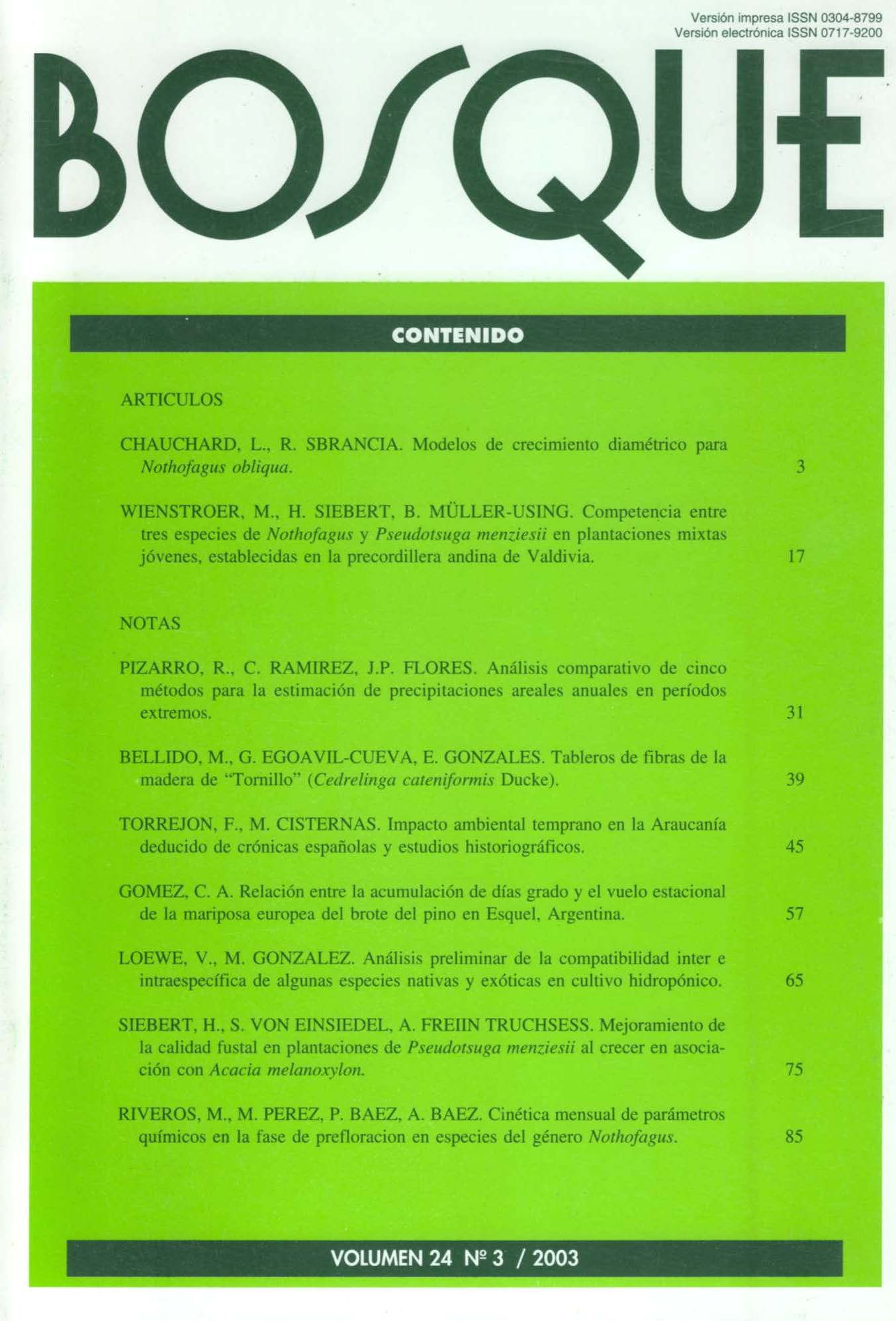Main Article Content
Dec 31, 2003
Abstract
In order to achieve a higher sustainability of productive processes, it is necessary to conduct a specific investigation on phytodiversity, allelopathic associations and the methods of maximizing cenotic interactions. With a productive objective in mind, this type of study is necessary for a better understanding of the processes that operate in mixed plantations. It can also facilitate the designs to be used in specific situations and for obtaining the maximum capacities from the site and species. The principles that regulate allelopathic relationships can be studied in different ways such as a laboratory analysis that simulates primary allelopathic effects (direct interactions among species). This is a useful tool for analyzing ecological problems and is undertaken by means of an analysis of data obtained when associating different species in hydroponic culture. This paper presents the obtained results of the reactions of seven species, both native and exotic, under hydroponic conditions and constitutes an indicator of the degree of intra- and inter-specific compatibility of the studied species.


